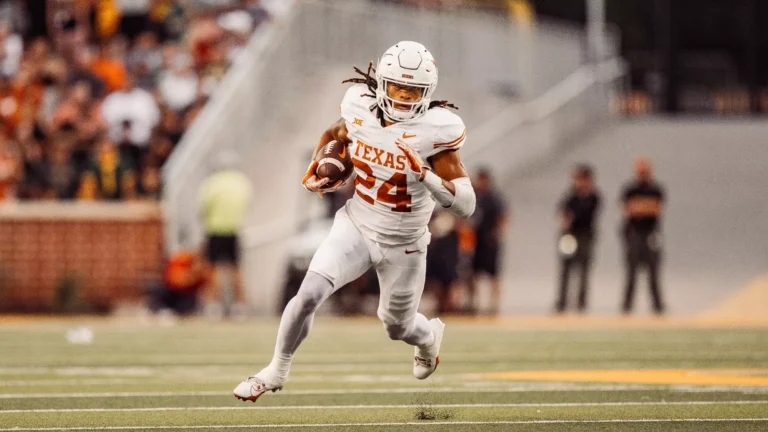In a significant move reflecting the importance of sportsmanship and respect in athletics, Texas has formally apologized to officials in Georgia and agreed to pay a $250,000 fine following a series of unsportsmanlike incidents involving its fans. This decision underscores the need for accountability within sports culture, especially as college athletics continue to capture national attention.
The incidents in question occurred during a high-stakes matchup between the Texas Longhorns and the Georgia Bulldogs. As the game progressed, a segment of the Texas fanbase engaged in behavior that was deemed disrespectful, including derogatory chants and gestures directed at Georgia players. Such actions not only violate the spirit of competition but also undermine the integrity of college sports, where camaraderie and mutual respect should be prioritized.
The reaction from Georgia officials was swift, as they condemned the actions of the Texas fans. In a joint statement, the athletic departments from both institutions emphasized the importance of maintaining a positive and respectful environment during sporting events. “Sports should be a celebration of talent and teamwork, not a platform for hostility,” they stated. The strong stance taken by Georgia officials highlights the broader commitment within the NCAA to foster sportsmanship across all levels of competition.
Texas’s apology was issued by its athletic director, who expressed deep regret for the behavior exhibited by some fans. “We take pride in our university’s values and the spirit of competition,” the statement read. “We acknowledge that the actions of a few do not represent the majority of our fanbase, but we must still hold ourselves accountable.” The university’s willingness to confront the issue head-on is commendable, as it demonstrates a commitment to rectifying the situation and restoring goodwill between the institutions.
The $250,000 fine imposed on Texas serves multiple purposes. Firstly, it acts as a deterrent against future misconduct by fans and signals that such behavior will not be tolerated. Additionally, the fine may be directed toward programs that promote sportsmanship and community engagement, thereby turning a negative incident into a positive opportunity for education and growth. The NCAA has been increasingly focused on promoting values that reflect respect and integrity in sports, and this fine aligns with those goals.
Moreover, this incident has sparked broader discussions about fan behavior in college athletics. While passionate support is a hallmark of college sports, it is essential that fans understand the impact their actions can have on players, coaches, and the overall atmosphere of the game. Instances of harassment or hostility can create a toxic environment, not just for opposing teams but also for fellow fans and families attending games. By addressing these behaviors, universities can work toward creating a more inclusive and respectful atmosphere at sporting events.
In light of this situation, other institutions might take note of the repercussions faced by Texas. As college sports continue to grow in popularity and visibility, the scrutiny on fan behavior will likely intensify. Universities must take proactive steps to educate their fanbases about appropriate conduct during games, emphasizing that while enthusiasm is welcomed, respect for all participants is paramount.
As the Longhorns and Bulldogs prepare for future encounters, the hope is that this apology and subsequent actions will pave the way for a more respectful rivalry. Both teams have storied histories and dedicated fanbases, and fostering an environment of mutual respect will only enhance the experience for everyone involved.
In conclusion, Texas’s apology and the associated fine serve as a critical reminder of the responsibilities that come with being part of the collegiate sports community. It highlights the necessity of maintaining decorum and respect, ensuring that the spirit of competition remains at the forefront of athletic events. As the landscape of college sports evolves, it is vital for all stakeholders—players, coaches, fans, and institutions—to work together to promote a culture of respect and sportsmanship.


